- Reporting Standars:
Authors of reports of original research should present an accurate account of the work performed as well as an objective discussion of its significance. Underlying data should be represented accurately in the paper. A paper should contain sufficient detail and references to permit others to replicate the work. Fraudulent or knowingly inaccurate statements constitute unethical behaviour and are unacceptable. - Data Access and Retention:
Authors are asked to provide the raw data in connection with a paper for editorial review, and should be prepared to provide public access to such data (consistent with the ALPSP-STM Statement on Data and Databases), if practicable, and should in any event be prepared to retain such data for a reasonable time after publication. - Originality and Plagiaris: The authors should ensure that they have written entirely original works, and if the authors have used the work and/or words of others that this has been appropriately cited or quoted.
- Multiple, Redundant or Concurrent Publication:
An author should not in general publish manuscripts describing essentially the same research in more than one journal or primary publication. Submitting the same manuscript to more than one journal concurrently constitutes unethical publishing behaviour and is unacceptable. - Acknowledgement of Sources:
Proper acknowledgment of the work of others must always be given. Authors should cite publications that have been influential in determining the nature of the reported work. - Authorship of the Paper:
Authorship should be limited to those who have made a significant contribution to the conception, design, execution, or interpretation of the reported study. All those who have made significant contributions should be listed as co-authors. Where there are others who have participated in certain substantive aspects of the research project, they should be acknowledged or listed as contributors. The corresponding author should ensure that all appropriate co-authors and no inappropriate co-authors are included on the paper, and that all co-authors have seen and approved the final version of the paper and have agreed to its submission for publication. - Disclosure and Conflicts of Interest:
All authors should disclose in their manuscript any financial or other substantive conflict of interest that might be construed to influence the results or interpretation of their manuscript. All sources of financial support for the project should be disclosed. - Fundamental errors in published works:
When an author discovers a significant error or inaccuracy in his/her own published work, it is the author’s obligation to promptly notify the journal editor or publisher and cooperate with the editor to retract or correct the paper. - Hazards and Human or Animal Subjects:
If the work involves chemicals, procedures or equipment that have any unusual hazards inherent in their use, the author must clearly identify these in the manuscript.
At SOLID, we are committed to the principles of open access, ensuring that all research articles published in our journal are freely available to anyone, anywhere in the world. This aligns with the core mission of disseminating community service outcomes across disciplines without barriers.
Key Principles
- Free Access: All articles published in SOLID are available for free, allowing readers to access, read, download, copy, distribute, print, search, or link to the full texts of articles without any restrictions or subscription fees.
- Reuse and Redistribution: Users are permitted to use articles for any lawful purpose, including use in software or data mining, as long as proper attribution is provided to the authors and the journal.
- Attribution: When using or sharing articles, users must attribute the original work by citing the authors and the journal title, ensuring that any derivative works maintain proper attribution.
Licensing
SOLID publishes articles under the Creative Commons Attribution License (CC BY 4.0), which allows for the free use, sharing, adaptation, distribution, and reproduction of articles in any medium or format. This license ensures that users must provide appropriate credit to the original author(s) and the source, provide a link to the license, and indicate if changes were made. Users may do so in any reasonable manner, but not in any way that suggests the licensor endorses the user or their use.
Data Availability
SOLID encourages authors to make their research data available when possible, using data availability statements to guide readers on how to access underlying research materials. This enhances transparency and facilitates further research in community service and interdisciplinary development.
Screening Plagiarism
The manuscript that submitted into this journal will be screened for plagiarism using iThenticate. iThenticate provides tools to help originality checking to prevent plagiarism, checks writing for citation mistakes or inappropriate copying with personalized feedbacks.
Digital Archiving
This journal utilizes the Indonesia One Search (IOS), Indonesian Scientific Journal Database (ISJD), Indonesian Publication Index (IPI) system to create a distributed archiving system among participating libraries and permits those libraries to create permanent archives of the journal for purposes of preservation and restoration.










